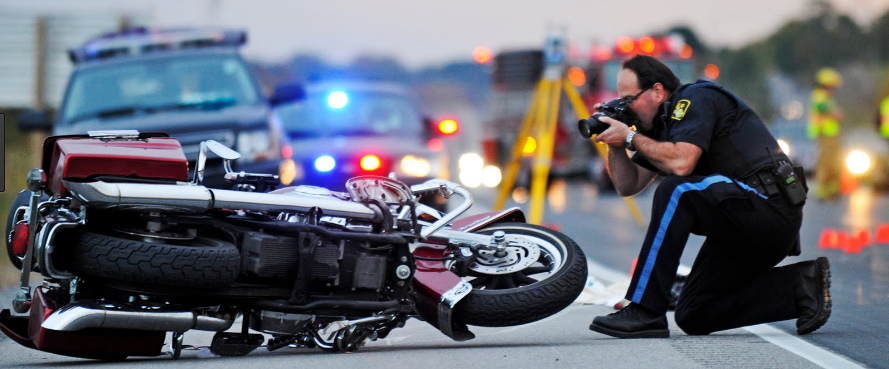Riding a motorcycle can provide an exceptionally exhilarating experience. As popular movies, magazines, music videos, and general advertising trends promote the fashionable credibility of bikes, thousands of new riders are added to the motorcyclist ranks each year. According to the Insurance Information Institute, the number of registered motorcycles rose 12% nationwide between 2008 and 2017.
As is the case with firearms and sport cars, (two other consumer goods that have hugely grown in popularity in recent years,) with great fun comes great responsibility. Two wheeled vehicles require a heightened level of skill and vigilance on the roadway as compared to cars since the platform inherently provides far less stability than four wheeled vehicles and therefore allows far less room for inattention.
Therefore, misuse of motorcycles can lead to financial disaster and jail time. An accident isn’t always an accident, but sometimes is a predictable, ticking time bomb waiting to blow; one that arises out of specific behaviors.
Licensure
Since bikes are simply more difficult to pilot than cars, they require a special license, distinct from that of a mere license to drive a car.
When Riding a Motorcycle Becomes a Criminal Act
What begins as an innocent and pleasurable motorcycle excursion can sometimes turn into something much more grave, requiring the assistance of an experienced motorcycle accident attorney.

- No License
To legally ride a motorcycle on the public way, one must demonstrate both the knowledge and skill required. Riding a bike without this special license is a criminal offense.
Though it might seem like a victimless crime at first glance, riding without a license constitutes negligence since insurance companies will not cover an unlicensed motorcyclist in event of an accident, leaving the rider civilly responsible not only for his own problems, but also for the personal injury and property damage of others. When the careless act of one puts others at risk, the act rises to the level of legal and criminalnegligence. If proven in a court of law, negligence carries both criminal and civil penalties.
- Stunting on the Roadway
The Legal Information Institute of Cornell Law School defines recklessness as “behavior that is so careless that it is considered an extreme departure from the care a reasonable person would exercise in similar circumstances.”
Acts such as popping wheelies, riding with improper seating position, (such as standing on the seat or facing backward) riding with an excess number of passengers, lane splitting, and riding at grossly excessive speeds create a great risk of losing control of the motorcycle or colliding with another vehicle, even for the most skilled of riders. When executed on the public way, these acts rise to the level of recklessness in the legal definition, and constitute criminal behavior. In other words, if a riderperforms death-defying acts, faulters in doing so, and therefore causes personal injury or property damage, that rider faces criminal charges up to and including manslaughter.
Mental State
All criminal statutes contain elements, whether few or several. Each element is a specific act that the culprit must be shown to have executed in order to be found guilty of the charge, and each one must be provenfor a conviction to take place.
Further, all criminal charges require a specific mental state to be proven to exist in the mind of the accused. If such a mental state is not proven, the defendant cannot be found guilty of the charge. One simple example is the mental state, knowingly. To be convicted on a possession charge, the defendant must be proven to knowingly possess the proscribed item or items. If the possession takes place unwittingly, i.e. the lack of knowingly, then the charge fails, and the defendant is found not guilty.
Get Legal Help
Recklessness and negligence are mental states that constitute elements of both criminal and civil offenses. Proving what a person was thinking requires great skill and experience. Prosecuting attorneys work hard to prove mental states and achieve convictions. Therefore, defendants need the assistance of a competent motorcycle attorney to refute false claims of mental state. If you or a loved one is being accused of negligence, recklessness, or any other civil or criminal offense because of a bike ride gone bad, seek the help of an experienced motorcycle accident attorney.

